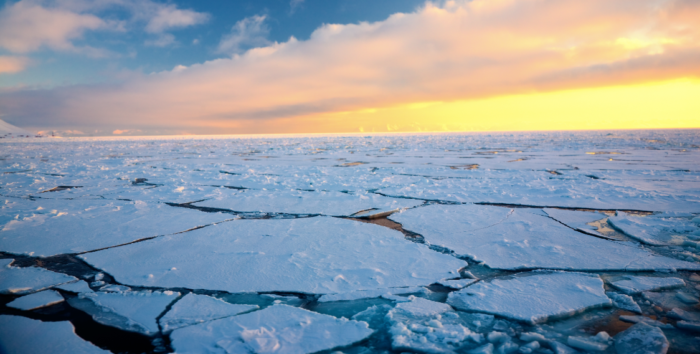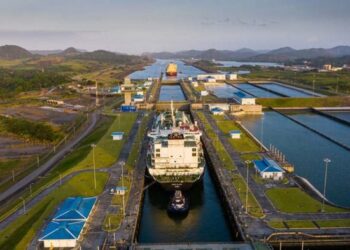Is Polar Code enough to ensure safety & environmental protection of seafarers, passengers and Arctic people? The majority (74%) of the participants in a quick SAFETY4SEA Poll replied no, while just 26% are satisfied with the application of the Code. But what lies behind this negative perception toward Polar Code which some years ago was described as the tremendous step forward for shipping in Polar waters? The question to be asked is “What’s next?” and a complete regulatory update follows to highlight key areas and challenges.
Polar Code explained
Namely, Polar Code is the international regime adopted by IMO in 2014 which sets out regulations for shipping in the Polar Regions. The International Code for Ships Operating in Polar Waters or Polar Code aims to provide guidelines for safe ship operation and the protection of the Polar Environment by addressing risks present in polar waters and not adequately mitigated by other instruments.
In particular, the goals and functional requirements of the Code cover:
- ship structure
- stability and subdivision
- watertight and weathertight integrity
- machinery installations
- fire safety/protection
- life-saving appliances and arrangements
- safety of navigation
- communications
- voyage planning
- manning and training
- prevention of pollution by oil
- control of pollution by noxious liquid substances in bulk
- prevention of pollution by harmful substances carried by sea in packaged form
- prevention of pollution by sewage from ships
- prevention of pollution by garbage from ships
Polar Code timeline
- November 2014: Polar Code and SOLAS amendments were adopted during the 94th session of IMO’s Maritime Safety Committee (MSC)
- May 2015: Member governments finalized and adopted the environmental provisions, complementing the work completed in 2014 regarding safety provisions.
- November 2016: Mandatory minimum requirements for the training and qualifications of masters and deck officers on ships operating in polar waters were adopted by IMO’s Maritime Safety Committee.
- January 2017: The Polar Code entered into force.
- July 2018: Requirements for training became mandatory under the International Convention on Standards of Training, Certification and Watchkeeping for Seafarers (STCW) and its related STCW Code.
How the Code applies:
The Polar Code is a ship-focused code with specific provisions divided into two Parts. Part I contains provisions incorporated through SOLAS and Part II contains MARPOL provisions.
1. Polar Ship Certificate
The Code requires ships intending to operate in the defined Arctic waters and the Antarctic area to have a valid Polar Ship Certificate issued by their flag states.
Before receiving a certificate:
All ships require an assessment, considering the anticipated range of operating and environmental conditions and hazards it may encounter in the polar waters. The certificate classifies a ship as:
- Category A – ships designed for operation in polar waters in at least medium first-year ice, which may include old ice inclusions
- Category B – a ship not included in category A, designed for operation in polar waters in at least thin first-year ice, which may include old ice inclusions
- Category C – a ship designed to operate in open water or in ice conditions less severe than those included in categories A and B
2. The Polar Water Operational Manual
In order to provide the Owner, Operator, Master and crew with enough information regarding the ship’s operational capabilities and limitations as well as support their decision-making process, ships need to carry a Polar Water Operational Manual.
Which are the training requirements?
The Code regulates all training and certification for officers working in Arctic/Antarctic regions. All SOLAS ships will be affected by this new regulation, and officers must be STCW certified.
8 major areas that training needs to cover
- Polar Code regulatory framework and MARPOL
- Voyage planning/navigation
- Effects of weather
- Recognition of ice formations and characteristics
- Icebreaker assistance
- Ships’ design
- Winterization and hypothermia
- Preparedness for emergency situations in Polar areas
Key challenges ahead
Several administrations, classification societies and NGOs find that the Code lacks in addressing tough measures that should be required in protecting ships, crews or the environment and they are calling for standards above those minimum requirements covered by the Code.
#1 New routes open, arctic shipping traffic increases
- Coastal states are expected to maintain more stringent safety and pollution prevention requirements in their national regulations.
- Coastal state regulations are likely to maintain present requirements for fishing and domestic trade vessels to which the Polar Code presently does not apply.
#2 HFO Ban
The Code already recommends ship operators “not to use or carry heavy fuel oil in the Arctic”, but it is not binding. Thus, to what extend therefore are the big shipping companies about to go “HFO clean”?
What is next regarding the Code on MSC/MEPC Agenda?
Recently, in December, IMO’s MSC 100 agreed on revisions to the Polar Code considered for adoption in 2022. The Member States and international organizations were invited to submit information to MSC 101 that will assist to determine the feasibility and consequences of applying the requirements in chapters 9 (safety of navigation) and 11 (voyage planning) of the Polar Code to non-SOLAS ships.
[smlsubform prepend=”GET THE SAFETY4SEA IN YOUR INBOX!” showname=false emailtxt=”” emailholder=”Enter your email address” showsubmit=true submittxt=”Submit” jsthanks=false thankyou=”Thank you for subscribing to our mailing list”]
MEPC 73 agreed that the Sub-Committee on Pollution Prevention and Response (PPR) should develop a ban on heavy fuel oil for use and carriage as fuel by ships in Arctic waters, based on an assessment of the impacts of such a ban.
The Committee further approved draft amendments to exemption provisions on the application of EEDI requirements. The amendment replaces exemption for ‘cargo ships having ice-breaking capability’ with ‘Category A ships as defined in the Polar Code’.
































































